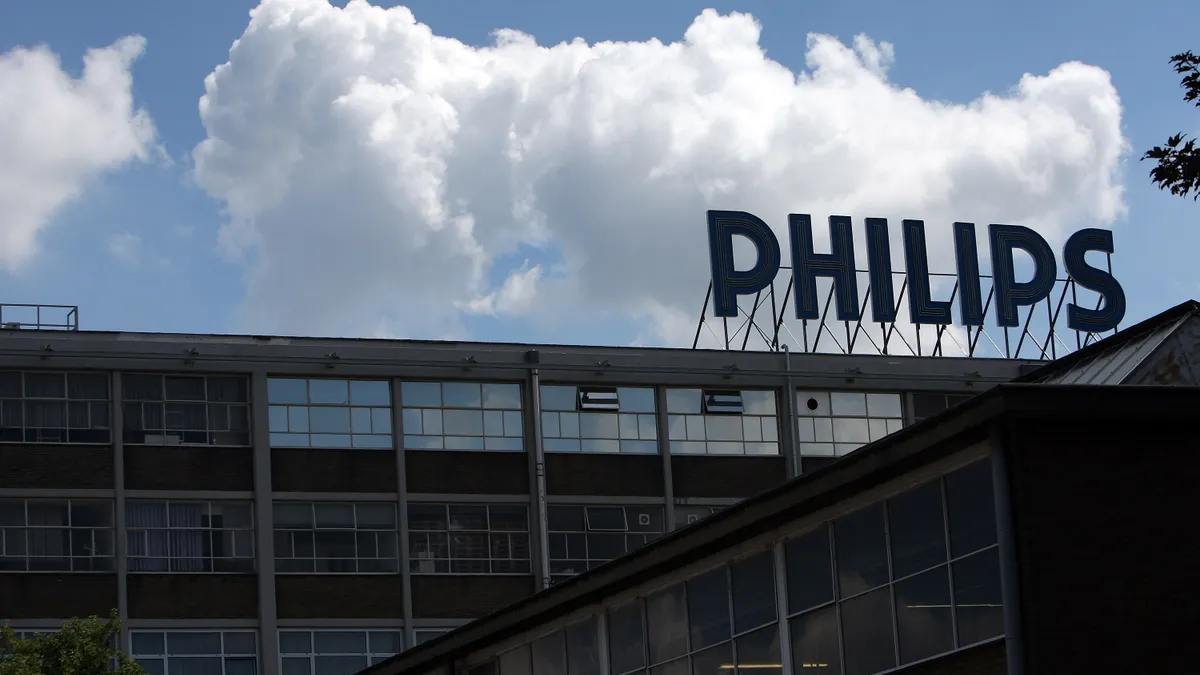Dive Brief:
- Philips has found new potential issues with the Respironics Trilogy ventilators that it reworked as part of a recall that began last summer.
- According to the Food and Drug Administration, the silicone sound abatement foam installed to replace the polyester-based polyurethane (PE-PUR) foam can block the air inlet and trace amounts of particulate matter have been found in the air pathway.
- News of the potential issues comes as Philips pushes to finish a recall that began in June 2021 and extends beyond its ventilators to include its sleep apnea machines.
Dive Insight:
Philips originally recalled the ventilators and other devices after learning that the PE-PUR foam used to reduce sound and vibration can break down, potentially causing the wearer to breath in or swallow black pieces of foam or certain chemicals.
In response, Philips began repairing or replacing millions of devices. The repaired Trilogy ventilators use a silicone foam to reduce noise. However, Philips now has discovered that the new foam can separate from its plastic backing and block the air inlet, lowering the inspiratory pressure.
The issue is one of two raised in the FDA notice. Regulatory officials also flagged the discovery of trace amounts of particulate matter in the air pathway of some reworked ventilators. Preliminary results from an analysis by a third-party laboratory show some samples contain PE-PUR and environmental debris. Other samples only contain environmental debris.
The FDA notice features no specific information about the response to the new potential issues, stating only that questions should be directed to Philips. Australia’s Therapeutic Goods Administration, which issued a product defect alert about the issues almost one week before the FDA, provided more details. It advises users who experience a ventilator alarm that doesn’t resolve to switch to their other device.
Philips is arranging delivery of an inline bacterial filter to Australian customers to minimize the risk posed by the particulate matter. The filter is designed to minimize exposure while Philips works on a permanent fix.











